MSI GE60 Review: Mainstream Mobile Maxwell
by Jarred Walton on July 17, 2014 5:00 AM ESTMSI GE60 General Performance
As I've commented already, the presence or lack of an SSD can dramatically alter the end user experience. In this case, the GE60 we're testing doesn't have an SSD and it can feel painfully slow when it comes to booting Windows, installing applications…or running PCMark 7. Versions of the GE60 with an SSD will of course be a different story, but I did run PCMark 7 and 8 on the GE60 and the scores are in the charts below. What you'll see is that PCMark 8 Storage as well as most of the PCMark 7 suite skew heavily in favor of SSDs, which isn't necessarily wrong, but it does make comparisons between HDD and SSD systems largely meaningless with these two benchmarks. Just remember: we're evaluating entire laptops, not individual components.
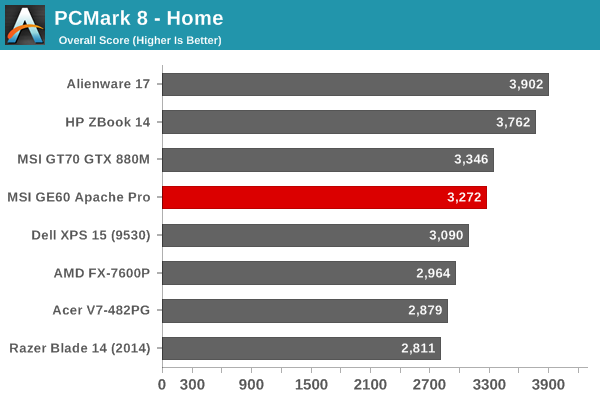
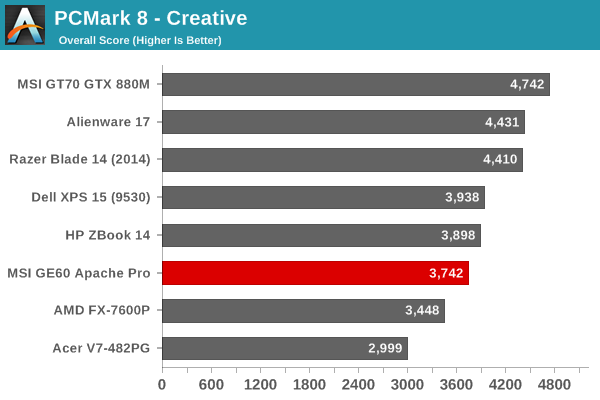
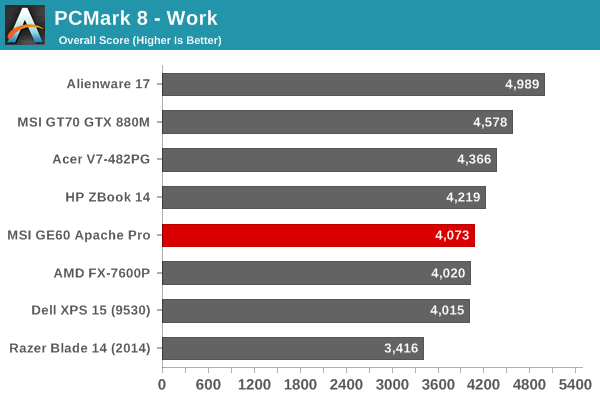
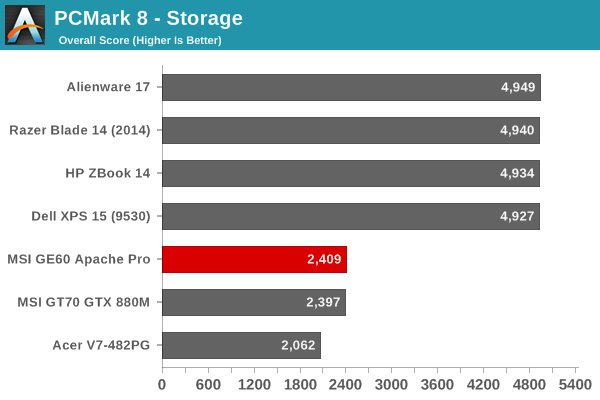
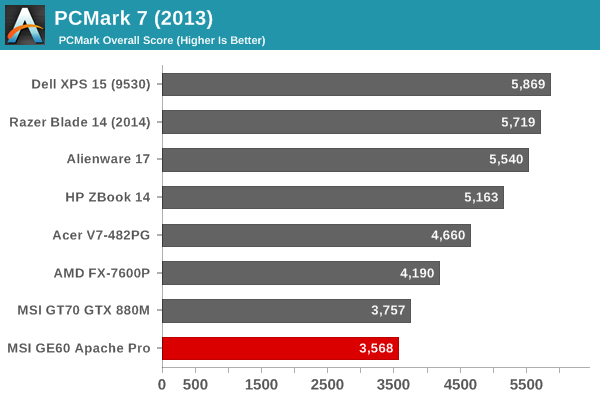
PCMark 8 apparently isn't as SSD biased on most of the tests, which is a bit odd to see. Or maybe Hitachi (who provides the HDD for the GE60 being tested) has done some special tuning to help this specific workload? Normally, about the only thing you can really glean from PCMark scores these days is whether a system is dual-core or quad-core, and whether or not it's using a pure HDD storage solution or something with an SSD (caching or pure SSD). Here, while the GE60 isn't the fastest at PCMark 8, it does beat several quad-core SSD laptops, and I'm not entirely sure why.
The Cinebench, x264 HD encoding, and 3DMark are basically component tests, so scores pretty much scale with the level of the hardware. Not surprisingly, everything falls where you'd expect, with the i7-4700HQ delivering good performance but trailing behind faster CPUs. 3DMark also more or less confirms the performance level of the GTX 860M. You'll also find results of WiFi throughput with several of the notebooks, though there's a huge amount of variance depending on your router, location, and other factors, so take the WiFi performance with a grain of salt. Here are the pertinent charts:
[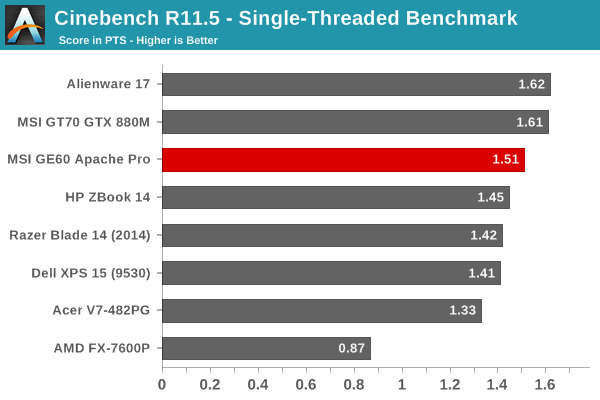
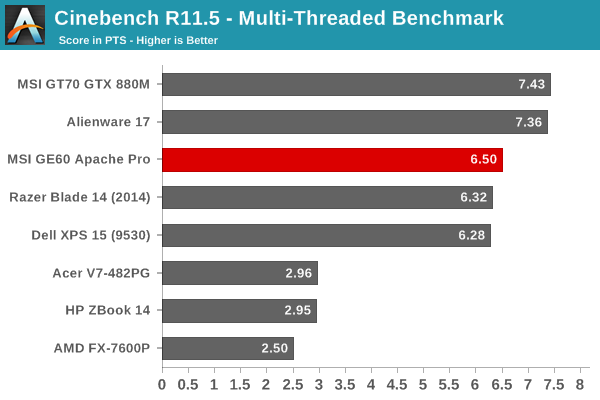
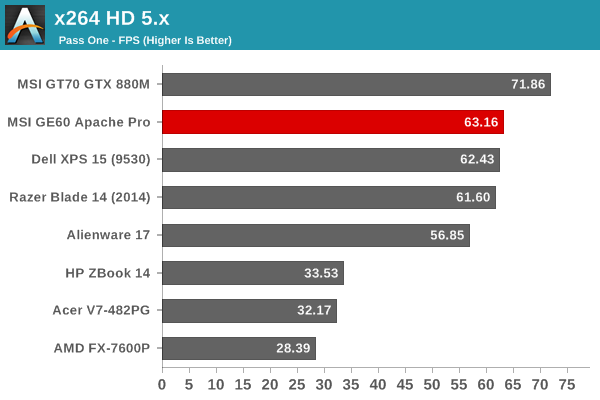
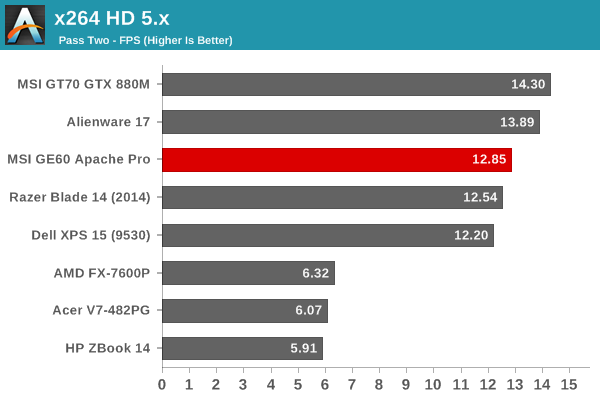
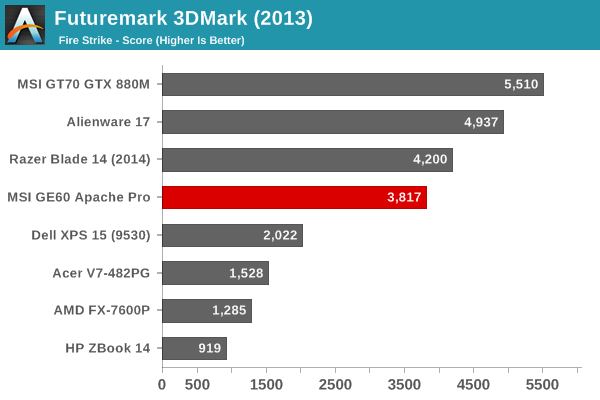
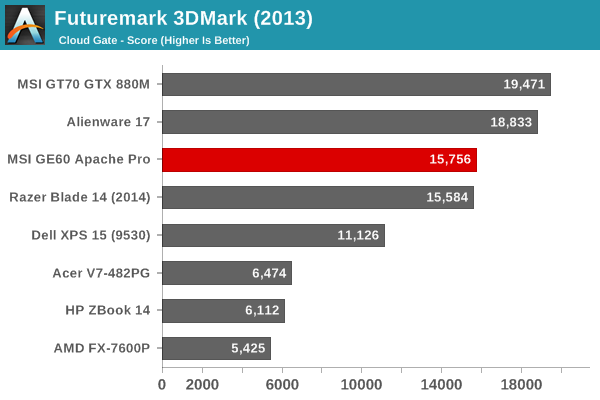
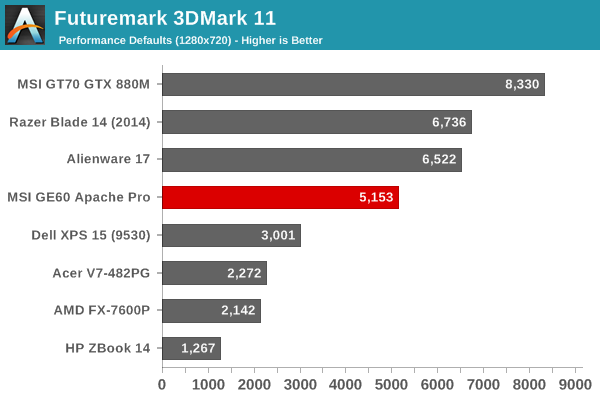
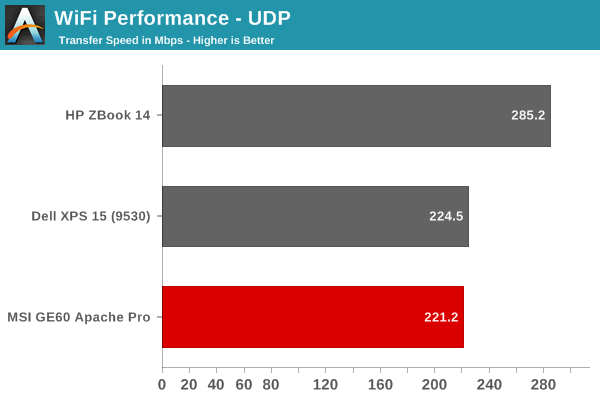










63 Comments
View All Comments
Flunk - Thursday, July 17, 2014 - link
I totally agree with you. I'd rather have a better experience typing than extra number buttons I'm not going to use all that often. If this was a business PC for accounting, perhaps the number pad would make sense.DanNeely - Thursday, July 17, 2014 - link
For everything work related except spreadsheeting, I'd rather have the arrows and navigation keys in the standard 104 key positions instead of smashed into the edge of the main area and scattered at random as fn-combos.JarredWalton - Thursday, July 17, 2014 - link
I use a 10-key enough that I'm happier with a full 104-key arrangement rather than 2-inch gaps on the right and left where keys could have been but aren't in the interest of centering the keyboard. YMMV.nathanddrews - Friday, July 18, 2014 - link
Indeed. I use the 10-key a lot for work and some games.Antronman - Thursday, July 17, 2014 - link
It's a gaming laptop, and some very popular games have mods or themselves take advantage of the numpad.Nagorak - Wednesday, July 23, 2014 - link
I use my numpad all the time. If the GE60 did not have a numpad I definitely would have had a hard time justifying my purchase of it.Khenglish - Thursday, July 17, 2014 - link
Have you looked at the W230ss? 13.3" clevo with 860m and 3200x1800 screen option.While it has a smaller screen, it's fatter than the MSI since clevo packed in the giant 12.7cfm fan that they use for GPU cooling on their bigger laptops.
emarston - Thursday, July 17, 2014 - link
I have the GE70 version... popped in 2 840 EVOs in raid (1TB drive as mass storage only) and it is quite nice. It can get warm, but being a bigger chassis and using a laptop cooler have totally removed any issues with that for me. With the SSD performance difference is dramatic.MooseMuffin - Thursday, July 17, 2014 - link
I realize you need to use certain configurations so you have points of comparison with other machines you've reviewed, but framerates at the display's native resolution are the only ones that really matter.evilspoons - Thursday, July 17, 2014 - link
It's weird, the lead-in for the page with gaming results talks about 1920x1080 (the panel's native res) but then I don't see any charts for that resolution. It's like they were left out by accident.On the other hand, if you dive into the control panel for your video card and enable "aspect ratio scaling on GPU" instead of the default scaling on screen, the jaggies tend to be MUCH less horrible when operating below native resolution.